
Dr. Karan Singh has remained in the political limelight from his years of youth, first succeeding his father Maharaja Hari Singh as Regent in 1949, then as the Sadr-i-Riyasat of Jammu and Kashmir and then as the Governor of the State. In 1967, Dr Karan Singh was inducted as a member of the Union Cabinet headed by Prime Minister Smt. Indira Gandhi. Thereafter, he was elected to the Lok Sabha from Udhampur Parliamentary constituency in Jammu Division as a nominee of Indian National Congress and he continued to retain this Constituency in the Parliamentary elections of 1971, 1977 and 1980.He also served as India's Ambassador to United States of America from 1989 to 1990. At present, he is a member of the Rajya Sabha.
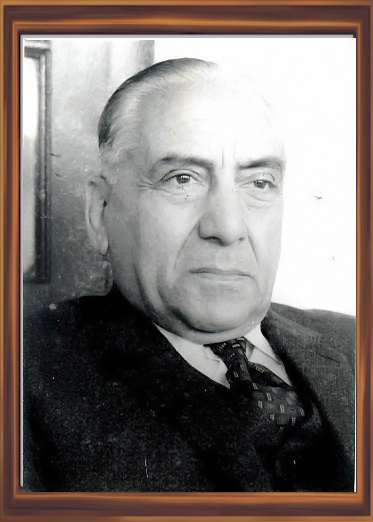
Sh. J. N. Wazir remained the Governor of J&K from 15-03-67 to 15-05-67. He also held the post of Chief Justice of Jammu & Kashmir from 30-03-1948 to 02-12-1967.
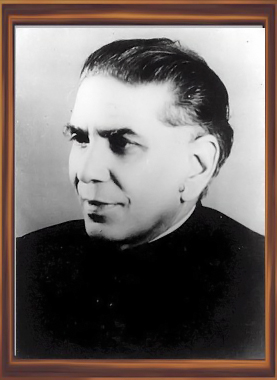
Sh. Bhagwan Sahai took over as the Governor of the J&K State on May 15, 1967 and continued till July 3, 1973.
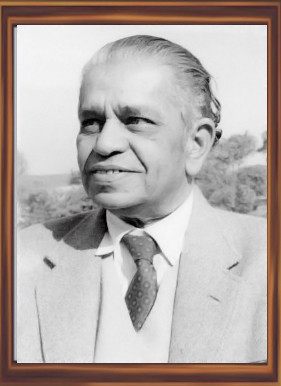
Sh. L.K.Jha took over as the Governor of J&K State on July 3, 1973 and continued till February 26, 1981. He also remained Indian Ambassador in United States of America from 1970 to 1973. Earlier, he had worked at key positions, including Secretary to Prime Ministers of India Sh. Lal Bahadur Shastri and Mrs. Indira Gandhi. His famous books are "Mr. Red Tape" and "Economic strategy for the 80s: priorities for the Seventh Plan".
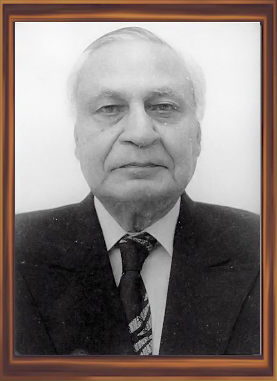
Sh. Brij Kumar Nehru graduated from the Allahabad University and went to London School of Economics. Sh. Nehru joined the then ICS in 1934 and rose to become the Secretary of Economic Affairs at the Centre in 1957. He distinguished himself as a Diplomat having been Ambassador to the US and the High Commissioner in UK. Earlier, in recognition of his knowledge of economic affairs, he was made Commissioner General (Economic Affairs) in a specially-created post in the Indian Embassy in the US with Ambassadorial rank. Sh. Nehru was appointed Governor of Assam in 1968 and became the Governor of Jammu and Kashmir in 1982. He also served one term as Governor in Gujarat.
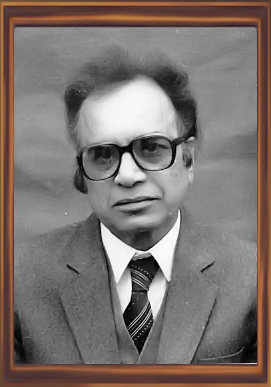
Sh. Jagmohan is one of the topmost civil servants that the country has produced in the post-Independence period. He was the youngest Lt.-Governor of Delhi and the only one who held this prestigious office for two terms. He served with great distinction in a number of key assignments, including that of Chief Executive of Delhi Development Authority for over seven years and as Lt.-Governor of Goa, Daman and Diu. Shri Jagmohan has also the rare distinction of being nationally honoured twice by the President of India. He was awarded Padma Shri for "making significant contribution to the formulation and implementation of the Delhi Master Plan and for playing a pioneering role in planning and implementation of projects". He was also awarded Padma Bhushan for his "exceptionally meritorious services to the country". Shri Jagmohan was also given a cultural award by the Australian Government in 1975. In the mid-sixties, he travelled around the world on a fellowship granted by the Indian Institute of Public Administration, New Delhi. He also attended two United Nations Conferences on 'Human Settlements' in Tehran and on 'Habitat' in Vancouver (Canada). Shri Jagmohan's published works include over 50 articles in leading newspapers and journals and four books: Rebuilding Shahjahanabad: The Walled City of Delhi; Island of Truth; The Challenge of Our Cities and My Frozen Turbulence in Kashmir. Shri Jagmohan, held the office of the Governor, Jammu and Kashmir, twice. He also formulated and carried out the historic reform of 'Mata Vaishno Devi Shrine'.
Shri Jagmohan was nominated to the Upper House of Parliament(Rajya Sabha) by the President of India, where he served with distinction for about six years. In April-May 1996, he was elected to the Lok Sabha from the prestigious New Delhi Constituency with a massive majority. In March 1998, he was elected for the second time from the same Constituency and was inducted into the Union Cabinet. He held the portfolios of Communications and Urban Development. In the September 1999 General Elections, he was elected the third time from the New Delhi Constituency. He was appointed a second time as a Cabinet Minister and held the portfolios of Urban Development and Poverty Alleviation, Tourism and Culture.
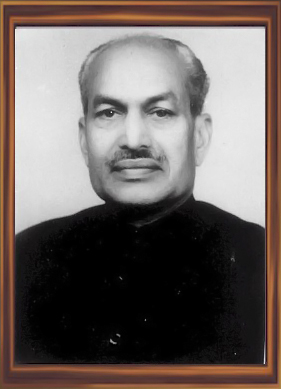
General K. V Krishna Rao, the former Chief of Army Staff, has been the Governor of Jammu & Kashmir, for the first time, from July 11, 1989 to January 19, 1990 and the second time, from March 13, 1993 till May 02, 1998. Gen. Rao was commissioned into the Indian Army in 1942 and saw action soon after, displaying even then a gift for leadership and coolness under fire. The high point came during the 1971 war, when in a series of brilliant manoeuvres, his division captured the Sylhet area and liberated north-east Bangladesh. General Rao retired as Chief of the Army Staff and Chairman Chiefs of Staff in 1983 and was appointed Governor of Nagaland, Manipur and Tripura in June 1984. He helped restore order to what was fast becoming a chaotic situation, with rising insurgency and political disarray.
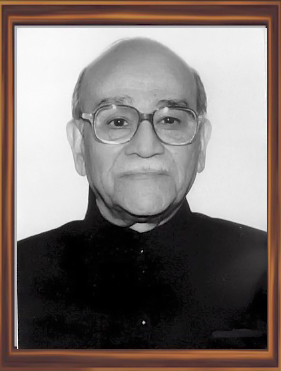
Sh. Girish Chandra Saxena took over as the head of the State on 2nd of May 1998 for the second time. Earlier, he held the office of the Governor J&K from May 26, 1990 to March 13, 1993.
Sh. Saxena was born at Agra in 1928. He had his early education in Government College Allahabad and G.N. K. High School, Kanpur. He did Intermediate course from Queen’s Intermediate College, Varanasi, graduated with a Bachelor of Arts degree from the University of Allahabad in 1946 and obtained the Post-Graduate Degree of Master of Arts(History) from the same University in 1948.
Sh. Saxena joined the Indian Police Service in 1950 and served in Uttar Pradesh as Chief of Police in various districts including Rampur, Aligarh, Bareily and Allahabad. Afterwards, he came on deputation to the Government of India in April 1969, served in R&AW(Research and Analysis Wing) for 16 years, and headed it from 1983 to 1986. Thereafter, he remained as advisor to the Late Prime Minister of India Sh. Rajiv Gandhi for two years till January 31, 1988.
Sh. Saxena's main areas of specialization are international affairs, national security and intelligence matters. He has attended international Conferences in India and abroad on these subjects, given talks and participated in many seminars and panel discussions. He addressed the Lal Bahadur Shastri National Academy of Administration in 1998.
He is married to Rajni Saxena nee Rajni Kaul and has two daughters and four grand children. His main hobby is sports, having been University Blue in Cricket and Badminton. He has also played Hockey, Football, Tennis, Table Tennis and Golf. Other hobbies include travelling, trekking and reading.
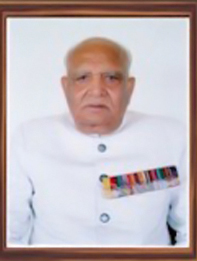
Born in 1926, Lt. Gen.(Retd.) Srinivas Kumar Sinha, PVSM, graduated with Honours from Patna University in 1943 at the young age of 17. He joined the Army soon thereafter, passing out as the Best Cadet from Officers training School, Belgaum, the war time equivalent of Sword of Honour. He saw combat service during Second World War in Burma and Indonesia and after Independence in Kashmir. He served two tenures in Nagaland and Manipur taking part in counter insurgency operations.
In 1953, General Sinha secured the top position at the Defence Services Staff College in India and in 1962 again, at the Joint Services Staff College in the U.K. He held all levels of active command in the Army from a platoon to a field army. He commanded a battalion in Ladakh, a brigade in Manipur, a mountain division in Assam, an infantry division in Jammu, a corps in the Punjab and a field Army in the Western Theatre. He held key staff and instructional appointments. He served as Director, Military Intelligence, Adjutant General and Vice Chief of Army Staff at Army Headquarters. He also served as Instructor at Mhow and Staff College, Wellington. In 1949, he was appointed Secretary of the Indian delegation on delineation of the Cease Fire Line in Kashmir at a meeting convened by the United Nations. He led the Indian delegation to Italy in 1972 for a conference on application of human rights to warfare. He was awarded the Param Vishist Sewa Medal in 1973. He was made Honorary ADC to the President of India and also President of the Gorkha Brigade. In a publication in the USA by the noted South Asian expert, Stephen Cohen, he has been referred to as one of India’s outstanding Generals after Independence. He sought premature retirement from the Army in 1983.
In 1990 General Sinha was appointed India’s Ambassador to Nepal, when autocratic rule obtained in that country and bilateral relations with India had hit their nadir in the wake of the trade and transit impasse of 1989. During his tenure in Nepal, democracy was restored in Nepal and India-Nepal relations were raised to a high level of cordiality. The Prime Minister of India stated that General Sinha had played a major role in this happy development. The Prime Minister of Nepal wrote, “General Sinha was as much India’s Ambassador to Nepal as Nepal’s Ambassador to India”.
In 1997 General Sinha was appointed Governor of Assam at a time when insurgency in the State was at its peak. He crafted a three prong counter-insurgency strategy as a result of which Assam emerged out of the tunnel of militancy through attitudinal change among the people of Assam. This became possible because General Sinha was able to win the hearts and minds of the people. On his departure from Assam where he had been given a second tenure as Governor, he received numerous letters saying that he was more Assamese than any Assamese and he was a true son of the soil of Assam.
General Sinha has been a prolific writer having contributed nearly 300 edit page articles in national newspapers. He is the author of five books including one on Jammu and Kashmir Operation of 1947-48 and his autobiography, “A Soldier Recalls”. His other three books are Of Matters Military, Pataliputra and Veer Kuer Singh.
On 4th June, 2003, General Sinha sworn in as the 11th Governor of Jammu and Kashmir and remained till 25th June, 2008. He passed away on 17th November, 2016
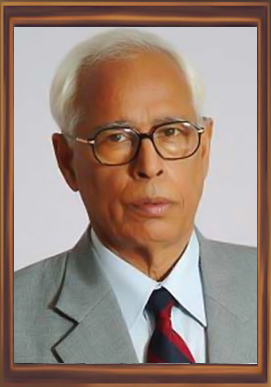
Educated at the Panjab University; after topping the list in M.A. (English) served as Lecturer in Panjab University (1957-59); Visiting Fellow at Queen Elizabeth House, Oxford University, UK (1969-70).
In the Indian Administrative Service (1959-1994), borne on the Panjab cadre; held various responsible positions under the State and Central Governments.
Following the Sino-Indian conflict: inducted into the Special Services Bureau (under the Central Intelligence Bureau), underwent training with the elite SAS of UK, and served in the Western Himalayan Sector.
Post Operation Blue Star: appointed Home Secretary when Panjab was facing grave disturbances; organized peaceful elections to the State Assembly in Sept 1985.
Served the Government of India in various capacities, including for over 8 years in the Ministry of Defence during which he served as Secretary Defence Production (1989-90) and Defence Secretary (1990-93).
Consequent to the serial bomb blasts in Mumbai: appointed Union Home Secretary (1993-94).
Recalled from retirement to serve as Principal Secretary to the Prime Minister of India (1997-98).
Served as Govt. of India’s Special Representative for carrying out the J&K Dialogue (2003-08).
As an international civil servant: served as Consultant to W.H.O., Geneva (1982-84).
Hony Life Member of International House of Japan, Tokyo.
Has been writing and lecturing on Governance and National Security issues and edited over a dozen books.
Awarded PADMA VIBHUSHAN in 2007.
Awarded Doctor of Laws (Honoris Causa) by Panjab University, Chandigarh (2011).
Appointed Chancellor of the Central University of Jammu (2012 – 17) by the President of India.
Served as Governor of Jammu and Kashmir (2008-13).
Re-appointed Governor of Jammu and Kashmir for a fresh term (2013 - ).
Presented SILVER ELEPHANT AWARD by President of India (2013) in recognition of his exemplary services for the promotion of the Scouts and Guides movement.
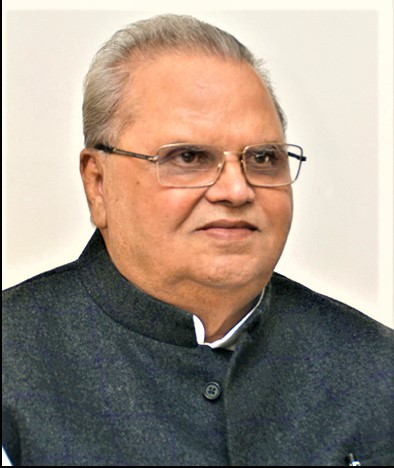
1965-66 - Entered Politics, inspired by the Socialist Ideology of Lohia Ji
1966-67 - Served as the President of Meerut College Students Union
1968-69 - Elected as the President of Students Union of the then Meerut University, now Choudhary Charan Singh University
1974 - Elected as a Member of Uttar Pradesh Legislative Assembly contesting on the ticket of Bhartiya Kranti Dal from Baghpat Assembly Constituency and appointed as the Party’s Chief Whip in the Assembly
1975 - Appointed as the All-India General Secretary of the newly formed ‘Lok Dal’
1980 – Nominated as the Member of Rajya Sabha from ‘Lok Dal’
1984 - Became a Member of the Indian National Congress (INC)
1986 - As a Member of Indian National Congress, elected to Rajya Sabha and was appointed as the General Secretary of the Uttar Pradesh Congress Committee.
1987 – Agitated over 'The Bofors Scam', resigned from the Rajya Sabha as well as the membership of INC and formed a political party, ‘Jan Morcha’, which was merged with the Janata Dal in 1988. Later, along with Mr. Vishwanath Pratap Singh, addressed many public meetings all over the country and joined the Jan-Jagran.
1987-91 - Appointed as the Secretary and Spokesperson of 'Janata Dal'
1989 – Elected for Lok Sabha from Aligarh, contesting from Janata Dal Ticket
2004 – Joined Bharatiya Janata Party and contested from Baghpat Lok Sabha seat
2005-06 – Appointed as the Vice President of Uttar Pradesh Bharatiya Janta Party
2009 – Appointed as All-India Incharge, Kissan Morcha of Bharatiya Janata Party
2012 - Appointed as the National Vice President of Bharatiya Janata Party
2014 - Imparted important services as the Chairman of Sub-Committee of the 'Manifesto' on agricultural issues before the Lok Sabha election
2014 – Re-appointed as the National Vice President of the Bharatiya Janata Party. Addressed farmer rallies organized by the Bharatiya Janata Party and its subsidiary organizations.
2017 - Appointed as the Governor of Bihar
2018 - Took oath as the Governor of Jammu and Kashmir on 23 August , 2018.